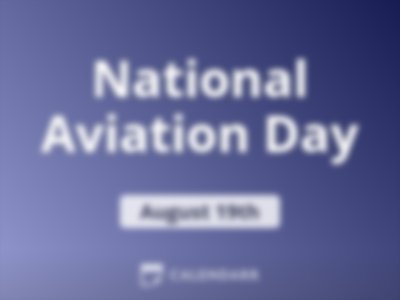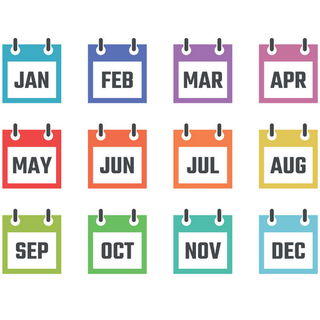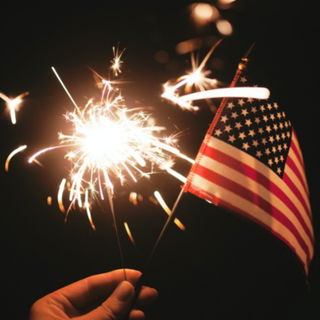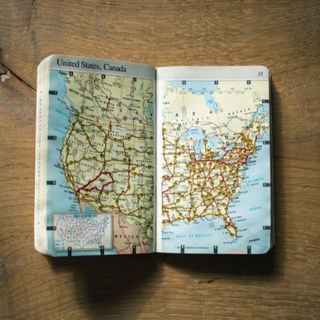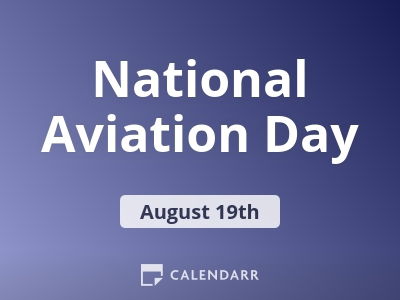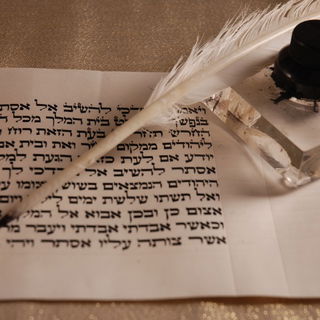August 19 is National Aviation Day, a holiday that commemorates the development of aviation and its revolutionary impact on scientific and technological progress. It falls on the birthday of Orville Wright, one of the Wright brothers, who were the first people in the world to successfully build a motor-operated airplane, and the inventors of aircraft controls.
World Pilot's Day, on the other hand, is celebrated on April 26 every year.
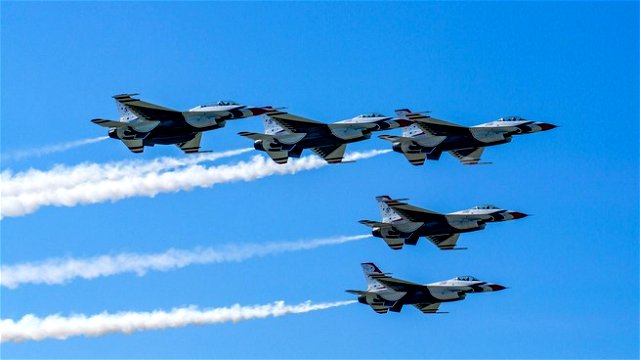
National Aviation Day Background
National Aviation Day was established as an official observance in the United States by President Franklin Roosevelt in 1939. Roosevelt proclaimed August 19 as the day for this holiday to be commemorated, as it coincides with the birthday of Orville Wright, who was the pilot of the Wright Flyer. He was the first person to fly a plane with aircraft controls that allowed him to steer the plane. The Wright brothers' contribution to aircraft technology was crucial in the advancement and development of aviation technologies.
Roosevelt's proclamation encourages the President in the office to designate August 19 as National Aviation Day every year and to motivate American citizens to get involved with aviation-related events that might be happening in their area in order to learn more about the history and technology behind it.
Aviation Through the Times
The fascination with flying is a centuries-old thing. There is the tale of Icarus in Greek mythology, the legend of Emperor Wang Mang who is said to have strapped wings to the back of one of his soldiers and ordered him to fly, and Leonardo da Vinci drew many plans for aircraft.
However, many of the first flight attempts in history lacked a motor and controllers. This meant that people could be lifted into the sky, such as in an air balloon, but couldn't control where they flew to.
The Wright Brothers began working on their flight ideas while working in a bicycle shop. They soon realized that in order to build an airplane that could successfully fly long-distance, it would have to have an engine. They were joined by Charles Edward Taylor, a machinist, who helped them build their own 12-horsepower engine, strong enough to fly an airplane.
After a couple of failed attempts, on December 17, 1903, with Orville at the steer, the Wright brothers successfully flew and piloted an airplane for 120 feet. This was a revolutionary moment in time that propelled the development of aviation.
Things to do on National Aviation Day
- On this day, many aviation enthusiasts visit the Wright Brothers National Memorial in North Carolina or visit museums and events dedicated to the history and science of aviation. This is the perfect day to try plane spotting!
- Some cities will host amazing airshows, where aircrafts demonstrate their amazing technology and skills.
- Schools may organize a whole learning day that focuses on aviation, and aviation pioneers such as the Wright Brothers or Amelia Earhart.
The goal of this day is to instill interest in aviation in the people of the United States.
The Role of Women in Aviation
Eleanor Roosevelt, the First Lady of the United States from 1933 to 1945 and wife of former President Franklin D. Roosevelt was one of the first persons who advocated the participation of women in Aviation.
Emma Lilian Todd
Born in Washington DC in 1865, Emma Lilian Todd designed an airplane in 1906. The same year, she publicly presented her design at Madison Square Garden in New York. Olivia Sage, a renowned philanthropist, found her design impressive and decided to invest in it.
Thus, Emma began the construction of her design in 1908. In 1910, a French Aviator named Didier Masson flew the aircraft successfully over the Garden City Aviation Field.
Harriet Quimby
Born in Arcadia, Michigan in 1875, Harried Quimby was the first woman in the United States who became a licensed pilot. Although she wanted to become a journalist initially, her plans changed when she saw the Belmont Park International Aviation Tournament. Besides this, it was also her brother John, a famous Aviator, who inspired her to become a pilot.
Harried Quimby also broke another record in 1912 when she flew across the English Channel. Unfortunately, Quimby breathed her last in a plane crash in July of the same year.
Bessie Coleman
Born in Atlanta, Texas in 1892, Bessie Coleman created history as she went on to become the first black woman with a pilot's license. She grew up in a poor household and often faced discrimination due to her color and gender.
At the time when World War I was going on, she was inspired by the tales of American Aviators. Her motivation to become a pilot doubled when her brother claimed that French women were better than African women because they knew how to fly.
Learning how to fly was a difficult journey for Bessie as the Flying school she approached rejected her due to her color and gender. Thus, she decided to travel to France to learn to fly. All her efforts and hardships paid off as the Fédération Aéronautique Internationale finally gave her the pilot's license in June 1921.
